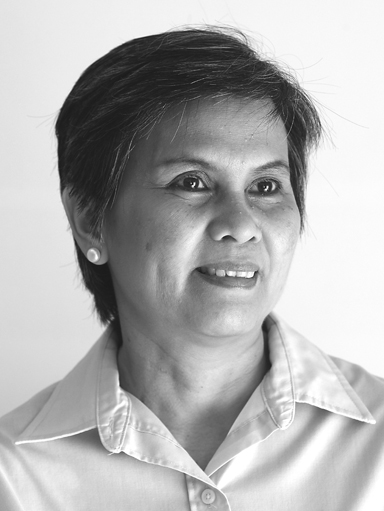
Atty. Gloria Estenzo-Ramos
The “rotating brown-out” happening in Cebu and other parts in the Visayas after a 5.6 magnitude earthquake struck the region is another dismal revelation of our lack of preparedness when disaster strikes.
We still don’t learn, do we?
Who was it who said that we can have no control of natural disaster, but we certainly have a say in how we choose to respond to it. “We can take precautions to help prevent a natural event from becoming a disaster” (World Risk Index)
Our classic response has been and still is “bahala na” — a fatalistic “leave everything to chance” mind frame.
We do make plans, oh yes, some agencies or local government units are marvelous in crafting them. But, is there a genuine collective commitment to implement those grand vision and action plan?
We know for ages that our beloved Philippines sits at the Pacific Ring of Fire. Earthquake is part of our existence by nature’s design. Our geographic location makes us vulnerable to typhoons. We have become “skilled” in coping with them, or so we think, until the deaths and destruction pile up and we again feel so utterly vulnerable.
We are highly exposed to earthquakes as Japan is, but by a long mile, Japan is not vulnerable, and the Philippines is — and extremely so.
The Philippines is rated third most at-risk country to disasters. The risk is high “wherever natural events hit vulnerable societies.”
Do we even ask why we are one of the most vulnerable to the impacts of climate change?
Vulnerability is defined in the Hyogo Framework for Action as “the conditions determined by physical, social, economic and environmental factors or processes, which increase the susceptibility of a community to the impact of hazards.”
Climate vulnerability is defined by our Climate Change Act, RA 9729, as “ the degree to which a system is susceptible to, or unable to cope with, adverse effects of climate change, including climate variability and extremes. Vulnerability is a function of the character, magnitude, and rate of climate change and variation to which a system is exposed, its sensitivity, and its adaptive capacity.”
By same law, “Adaptive capacity” refers to the ability of ecological, social or economic systems to adjust to climate change including climate variability and extremes, to moderate or offset potential damages and to take advantage of associated opportunities with changes in climate or to cope with the consequences thereof.”
I like the definition of the United Nations Office for Disaster Risk Reduction for “Resilience” defined as “the ability of a system, community or society exposed to hazards to resist, absorb, accommodate to and recover from the effects of a hazard in a timely and efficient manner, including through the preservation and restoration of its essential basic structures and functions.”
Do you feel safe when it is admitted that only a handful of local government units nationwide have crafted the required climate change action plan?
This is not a unique phenomenon, however. It is consistent with the fact that LGUs still have to prepare, in a participatory manner, the much need plans required by laws such as Ecological Solid Waste Management Act, Clean Air Act, Clean Water Act, Disaster Risk Reduction and Management Law?
Meanwhile, only the Ombudsman, among various institutions in this country, has the courage and boldness to start the process of holding accountable the local government officials who have been remiss in implementing RA 9003, the Ecological Solid Waste Management Act. To think that it has to add this demanding role to their function of handling the investigation and prosecution of public servants charged with various public offenses.
The Office of the President by itself or through the Department of Interior and Local Government units, is given the constitutional mandate of supervision over local government units.
The power of supervision was defined by the Supreme Court in various cases as the “power to ensure that they act in accordance with the scope of their functions.”
Not complying with the duty of enforcement of environmental laws is a ground for investigation as to why there was a failure to perform such functions on the part of the supervised entity.
We commend the pronouncement of Agriculture Secretary Manny Piñol that the local government units not implementing the Fisheries Code as amended by RA 10654 in 2015 to fight illegal, unreported and unregulated fishing, will be held accountable.
Moreover, citizens can do the same. Not many are aware that RA 10654 has a Citizen Suit provision, which recognizes the right of any person to file administrative, criminal and civil cases against any public officials who are not implementing the law or improperly implementing it.
By not enforcing the law against dynamite or other forms of illegal fishing, for example, a local chief executive is allowing the destruction of our marine ecosystems, which hampers both nature’s capacity and ours as well to be resilient.
We certainly cannot afford to be passive in the midst of the challenges of the millennium. Each of us has the duty to prioritize the security of our people, especially the most vulnerable among us who depend solely on healthy natural ecosystems for their sustenance.
As citizens, we have to help build that resilience within us and among the members of our community, with government, and make such as its top priority.
Disclaimer: The comments uploaded on this site do not necessarily represent or reflect the views of management and owner of Cebudailynews. We reserve the right to exclude comments that we deem to be inconsistent with our editorial standards.




